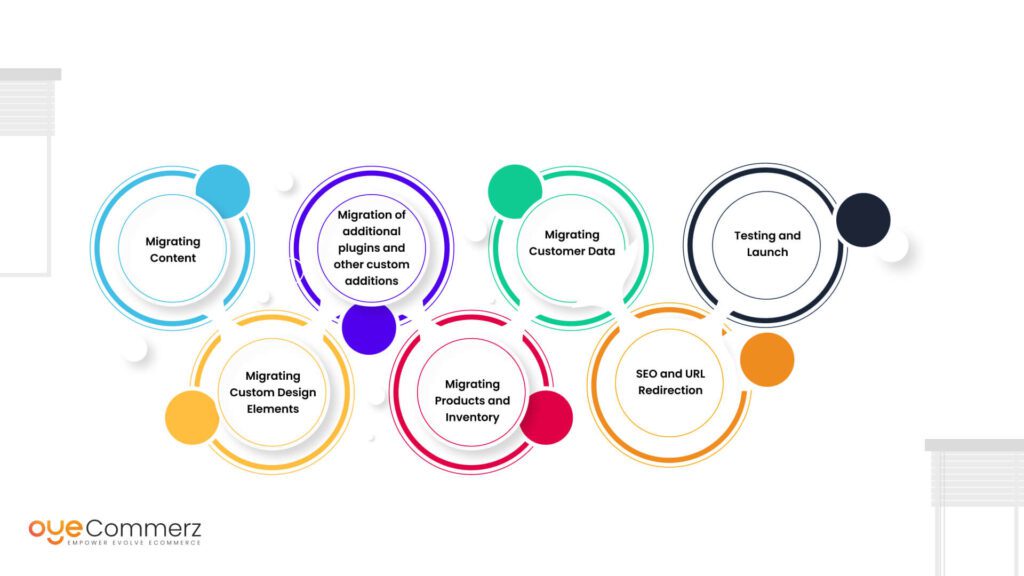In the constantly changing sphere of eCommerce, choosing the optimal platform is vital for your business's success. If you’re at the moment using WP and considering a migration to Shopify, you’re not the only one. Many businesses are switching to utilize Shopify’s powerful capabilities, simplicity, and scalability. This guide will walk you through the steps of migrating from WP to this platform seamlessly, guaranteeing that you unlock your eCommerce potential.
Why Transition from WordPress to this platform?
Ahead of diving into the migration process, it’s essential to understand why this change can be beneficial for your eCommerce business:
Intuitive Design: Shopify features an straightforward system that makes easier store operations, allowing for non-technical users.
Growth Potential: As your company grows, Shopify can accommodate higher traffic and sales without compromising speed.
All-in-One Solutions: Shopify includes integrated tools for search engine optimization, analytics, payment processing, and much more, reducing the need for several plugins.
Robust Protection: With Shopify, you utilize robust security protocols that secure confidential customer data.
Steps for a Smooth Migration
Migrating your online store from WordPress to Shopify involves several actions.
Here’s how to achieve a hassle-free transition:
Plan Your Migration Plan
Kick-off by outlining your migration plan. Pinpoint which components of your present site you plan to transfer, such as:
Product data
User details
Order history
Blog content
Select the Best Migration Package
Depending on your preferences, select a migration service that fits your store. Migration experts delivers several plans:
Entry-Level Plan: Ideal for boutique stores with fewer products.
Standard Migration Package: Recommended for medium-sized businesses with moderate needs.
Premium Migration Package: Excellent for larger stores requiring broad customization.
Secure Your Information
Ahead of starting the migration, make sure that you have a full backup of your WordPress site. This task is critical in case anything goes awry during the move.
Export Your Content from WordPress
Use plugins or manual methods to extract critical information from your WordPress site:
Items
Customers
Sales records
Blog posts
Import Information into Shopify
Once you have your data retrieved, utilize Shopify’s built-in features or specialized apps to transfer your information into your updated store. Confirm that all data is correctly structured and aligned.
Customize Your Shopify Site
After migrating content, customize your Shopify store’s layout to match with your business goals. Consider engaging a designer if you want complex customization.
Establish Checkout Systems and Logistics
Set up payment gateways and shipping settings in Shopify to create a user-friendly transaction experience for customers.
Implement SEO Standards
To keep your search engine rankings during the change:
Implement 301 URL mappings from old URLs to migrated ones.
Revise metadata.
Enhance images and copy for SEO.
Evaluate Your Migrated Platform
Ahead of going live, extensively review your new platform. Identify any broken links, checkout failures, or incomplete files.
Publish Your Store
After everything is in ready, Shopify for large-scale business it’s the moment to publish! Inform the change to your customers and invite them to discover the new capabilities of your Shopify store.
Post-Migration Guidance
Post releasing your Shopify store, regular help is important. Consider engaging professionals who can guide with:
Technical support
Promotional campaigns
Performance optimization
Conclusion
Migrating from WP to this platform can be a transformative move for your digital business. By adopting this guide and leveraging tools like those offered by dedicated providers, you can Shopify performance improvements guarantee a effortless transition that boosts your digital storefront. Embrace the change and unlock the potential of Shopify today!
